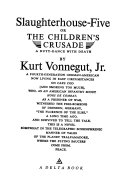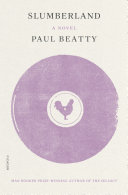Explore these 14 best satire authors and discover how humor can shed light on important ideas. Dive into their witty works and see the power of satire in action!
Satire is a type of writing that uses humor to draw attention to political or social problems. The humor adds to the accessibility of the writer’s ideas. If you are interested in reading some great satire, you need to find the right satire authors. Some authors are particularly well-known for their satirical work, and you can find most of them on Amazon. Here are 14 that are worth reading because of their masterful use of satire.
You might also enjoy best Irish authors, best British authors, best American authors.
For more recommendations, you might also enjoy exploring best adventure books, best David Sedaris books, or authors like Bill Bryson.
Table of Contents
Open Table of Contents
Famous Satire Authors of All Time
1. George Orwell
George Orwell’s novella Animal Farm took an allegorical take on Stalin and his reign.
George Orwell’s strong opposition to totalitarian governments caused him to write novels that were blazing examples of satire. Though his books were interesting stories in their own right, they also had quite a bit to say about what was going on in society.
For example, his novella Animal Farm took an allegorical take on Stalin and his reign, while Nineteen Eighty-Four poked fun in satire form at totalitarianism and the dystopia it would eventually create.
Orwell lived from 1903 to 1950. His legal name was Eric Arthur Blair, and he was from England. His works remain popular with literary critics and educators today.
2. Chuck Palahniuk
Chuck Palahniuk’s works mock the media-centric nature of modern society, including how focused Americans tend to be on celebrities.
Chuck Palahniuk’s works mock the media-centric nature of modern society, including how focused Americans tend to be on celebrities. His works are known as transgressions fiction, and one of his most famous is Fight Club. After Hollywood took on the story, it gained a cult following, and Palahniuk became a well-known author.
Palahniuk is an American author who was born in the state of Washington. He attended the University of Oregon School of Journalism and started writing for newspapers early in his career while also working as a diesel mechanic. In his 30s, he started writing fiction, publishing Fight Club in 1996.
Palahniuk takes on tales of people marginalized by modern society who react to that with self-destructive aggression in books. One of his works, Lullaby, is a satire against the power of media to influence people’s daily lives. Interested in knowing more best authors in the political fiction genre?
3. Jonathan Swift
Jonathan Swift was an Irish satirist, poet, and pamphleteer who lived in the late 1600s and early 1700s. Most of his works feature satire in some form. In fact, he is so well-known for his satirical books that sometimes literary satire is called “Swiftian.”
Swift was born in Dublin and spent much of his youth in Ireland. As a young adult in college, the Irish Revolution forced him to flee to England. After the year 1700, he began his writing career, and his first book was A Tale of a Tub.
Many know Swift because of Gulliver’s Travels, another of his famous books. This full-length work is a classic piece of English literature. While it appeals to children because of the story’s adventure, it also is satire in that it pokes fun at the state of the European government and the religious bickering of his time.
4. Joseph Heller
Joseph Heller is most famous for his book Catch-22, a satirical work showcasing the futility of war and bureaucracy.
Joseph Heller is most famous for his book Catch-22, a satirical work showcasing the futility of war and bureaucracy. The book’s title has become part of modern vocabulary, meaning something absurd or a contradictory choice.
Heller was born in Brooklyn in 1923. He loved to write starting in his youth. Heller served in the Army during World War II. He published Catch-22 in 1961, and when someone purchased movie rights in 1962, he became a millionaire.
Heller’s take on writing was interesting in that he only wrote a story after he crafted the first and last lines. He wrote many other novels, with his final novel being, Portrait of an Artist, as an Old Man.
5. Kurt Vonnegut
Kurt Vonnegut’s book Slaughterhouse-Fivemocks the Vietnam War, and it became a nearly instant New York Times bestseller.
Kurt Vonnegut published 14 novels, three short story collections, five plays, and five nonfiction books over his writing career. His sixth novel, Slaughterhouse-Five, was his most successful and made him a well-known name in literature. The book mocks the Vietnam War, and it became a nearly instant New York Times bestseller.
Born and raised in Indianapolis, Vonnegut attended Cornell, Carnegie Mellon, the University of Tennessee, and the University of Chicago. He served in World War II as an intelligence scout.
Because anti-war sentiment was so strong when he published Slaughterhouse-Five, Vonnegut gained instant popularity, getting asked to speak many times in the following years. The book became a Universal Pictures movie in 1972, and Vonnegut praised the translation into the movie world.
6. Mikhail Bulgakov
Mikhail Bulgakov was a Russian writer who published The Master and Margarita, one of the masterpieces of 20th-century literature.
Mikhail Bulgakov was a Russian writer who published The Master and Margarita, one of the masterpieces of 20th-century literature. Many of his works spoke satirically against Stalin and his regime and were banned by the Soviet government.
Bulgakov was born in 1891 and lived through the Russian Civil War. That became the subject of many of his books. Today, many exhibits and museums in Russia carry the famous author’s name.
The Master and Margarita is his most famous work, and he began writing it in 1928. However, it did not get published until after his death in 1940. Finally, his widow published it in 1966.
7. Christopher Moore
Christopher Moore’s book Dirty Jobpokes fun at the human condition and death itself.
Christopher Moore is a modern satire writer who uses dark humor to make his point. A Dirty Job is one of his novels, and it pokes fun at the human condition and death itself.
Moore was born and raised in Ohio before attending college in California and then moving to Hawaii. His first novel, Practical Demonkeeping, was an instant success. Before becoming a writer, he had many jobs, including working as a DJ and an insurance broker.
Many of his jobs come into his books. He creates fanciful worlds that are a bit like reality yet different enough to be pretty funny to read. Today, Moore resides in San Francisco.
8. Evelyn Waugh
English writer Evelyn Waugh wrote novels, travel books, and biographies. Many of his early works, including Decline and Fall and Handful of Dust, were examples of satire. These comic novels reflected the futile nature of society with flat, unbelievable characters, making them a social commentary on the issues of his day.
Waugh’s full name was Arthur Evelyn St. John Waugh, and he was born in 1903 in London, England, living until the age of 62. After his first marriage failed, he became Catholic, and he served in the Royal Marines during World War II.
A prolific writer, Waugh was considered one of the leading 20th-century English prose writers. Some of his later works focused on the struggle between good and evil as he analyzed what happened in World War II. It is interesting to note that only his pre-war novels show his satirical writing.
9. Jane Austen
Jane Austen’s novels are satirical looks at the British landed gentry and the 18th century.
Though she only wrote six novels, Jane Austen had a tremendous impact on English language literature. Her novels are satirical looks at the British landed gentry and the 18th century. Books like Pride and Prejudice and Sense and Sensibility have rarely been out of print since their original publication.
Jane Austen’s personal life has little information surrounding it. She wrote many letters to her family, which were lost. She never married, and she died in 1817 at the age of 41.
The memorable characters of Austen’s novel have kept them timeless through the years. Most have movies now, as a new generation continues to discover the strong women of Austen’s world.
10. Mark Twain
Satire is a clear part of Mark Twain’s writings.
Mark Twain was the pen name of Samuel Langhorne Clemens, and many call him the Father of American Literature. His books The Adventures of Tom Sawyer and The Adventures of Huckleberry Finn continue to inspire children today. Yet, at the heart of these books is a satirical look at the American politics and religion of Twain’s day.
Raised in Hannibal, Missouri, a town that became the setting for his famous books, Twain worked as a Mississippi riverboat pilot, which worked into some of his books. However, even though his books and his work as a public speaker earned him a lot of money, he invested it poorly, losing most of it and declaring bankruptcy at one point.
Satire is a clear part of Mark Twain’s writings. He pokes fun at the close-minded people he saw around him. Many of his works are subtle political satire, attacking political issues of his time like slavery and imperialism.
11. Paul Beatty
Paul Beatty’s book The Sellout was a satirical work that looked at police brutality and racial tension.
Paul Beatty is a professor of writing at Columbia University and the author of The Sellout, which earned him the National Book Critics Circle Award and the Man Booker Prize. He was the first American writer to win the Man Booker Prize.
Beatty was born in California and earned an MFA in creative writing and an MA in psychology. In addition to his novels, he has several collections of poetry. His works include a lot of humor, which makes his meanings stick.
The Sellout was a satirical work that looked at police brutality and racial tension. His heavy use of stereotyping helps make his point throughout the novel. Can’t get enough? You might want to Or you can search for more best authors using our search bar just type in “best authors”!
12. Terry Pratchett
Terry Pratchett created a satirical fantasy world that sheds light on modern society’s problems through the book Discworld.
The author of the 41 Discworld books, Terry Pratchett, created a satirical fantasy world that sheds light on modern society’s problems. His works are particularly humorous while still making a point through satire.
His most iconic series, Discworld, takes place in a flat, circular world that rides on the back of four elephants standing on a giant star turtle. Though this sounds quite fantastical, he takes this imaginary world and takes a stab at some real-world issues through it. This makes them excellent examples of satire.
Pratchett published his first story at age 13 in the school newspaper. It proved from early years that writing was his destiny. This prolific British author wrote up until his death in 2015. In 2009 he was honored to be knighted by the Queen for his literary works.
13. Miguel de Cervantes
Miguel de Cervantes used satire to show the folly of chivalry as shown in the books of the time.
The author of Don Quixote, Miguel de Cervantes, used satire to show the folly of chivalry as shown in the books of the time. The main character, Quixote, tries to win the heart of his lady love, tackling a windmill along the way. Many critics believe Don Quixote to be the first modern novel, and it has the most translations of any novel in the world.
Cervantes lived from 1547 to 1616 in Spain, living much of his life in poverty. Most of his works, including Don Quixote, were written in the three years before he died after the Count of Lemos offered him support. Little is known about the author’s life because of the era when he lived.
Even though his biographical information is unknown, Cervantes’s work lives on as people around the globe continue to study his work. It has also become the subject of plays and movies.
14. Voltaire
Voltaire was a philosopher in France during the Age of Enlightenment. His novel Candide, also known as All for the Best, is widely translated. It follows a young man, Candide, who lived a sheltered life, only to have it fall apart around him and plunge him into hardship.
Voltaire lived from 1694 to 1778, and he wrote most types of work with around 2,000 books to his name. Many of his works were a satire on the politics and religious dogma of the French era.
Though he was born and raised in France, Voltaire traveled throughout his life. His work is still a subject of study today because of his immense creativity and ability to reason.





